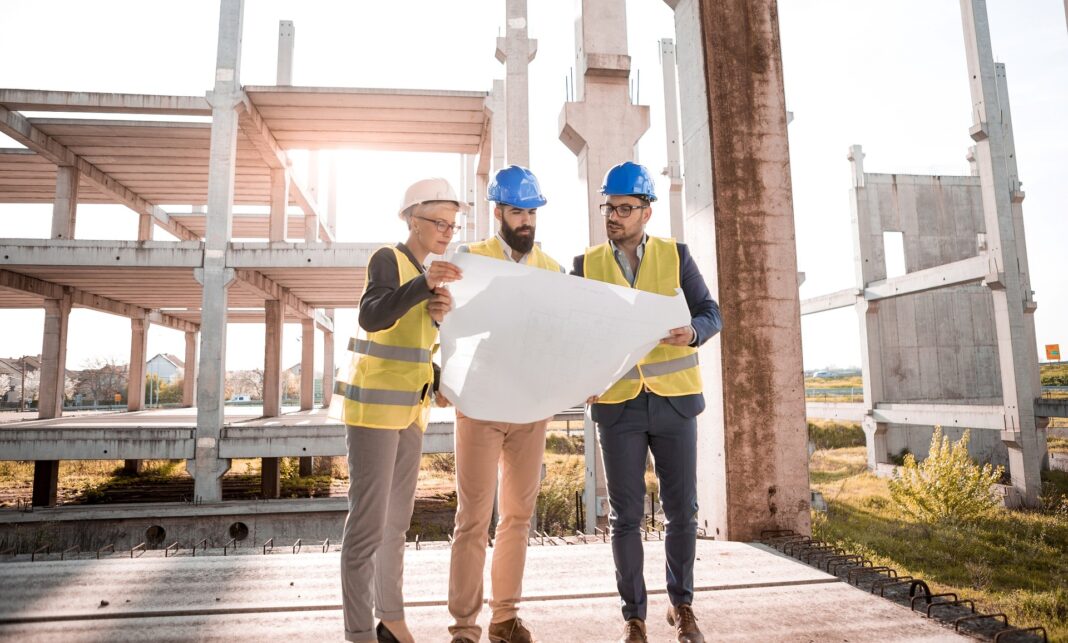You need to set a few things right before you can even think about starting a commercial construction project. It may include checking the area, getting permits, hiring contractors, etc. Here, we’ll share some important tips and information that will help you get off your project on the right foot. Keep reading to learn more!
Tips for onboarding Commercial Construction Project
Know Your Project’s Scope – What You Are Building, And How Big Will It Be?
Knowing and understanding what you are building and how big of a project it is going to be is critical to a successful launch. Taking the time to understand your project’s scope will provide clarity for the design process and keep costs that may arise during implementation at bay.
Gaining an insight into the true size of the project will help you form realistic expectations and set measurable outcomes that can be easily reviewed. It could save you money and time and eliminate potential hassles later in construction. It’s well worth taking the time to fully appreciate the exact nature of your undertaking before embarking on your journey.
Research The Cost Of Materials And Labor In Your Area
Before starting any commercial construction project, it’s essential to research the cost of materials and labor in your area. Knowing the pricing for each aspect of the project gives you a better prediction of your final budget.
Researching local material and labor costs means understanding prices for items or services based on your geographical location, so you can make accurate decisions about products, materials, and contractors rather than relying on generalized estimates.
Get Quotes From Multiple Contractors To Compare Pricing
Shopping around and getting quotes from multiple contractors is a great way to get the best overall value for your commercial construction project. Comparing the costs and services offered by the different professionals will help you determine who has the most competitive prices for the job.
It’s wise to do some proactive research so that you don’t end up spending more money than necessary. Make sure you understand everything that’s included in the quote and determine the level of quality to ensure you find the perfect fit for your budget.
Have A Contingency Fund Set Aside In Case Of Unexpected Costs Relating To The Construction Project
As most construction projects involve a large financial investment, it’s extremely important to have a contingency fund set aside in case of any unexpected costs. It will give you instant access to money so that the project is not delayed or canceled while waiting on traditional loans.
Instant cash loans can be used as part of the contingency fund and will ensure that you are always prepared for unforeseen expenses. Having this safety net of funds offers peace of mind when entering any kind of contract related to the construction project, allowing you to move forward confidently.
Make Sure You Have The Necessary Permits And Approvals Before Starting Construction
However tempting it may be to just jump right in and start construction, it is crucial to make sure you have the necessary permits and approvals before getting started. Not obtaining the right permits can lead to expensive fines or stoppage of work down the line; consequently, it’s always wise to allot ample time at the beginning of your project for this necessary step.
Getting the proper permits and approvals can take time, depending on your area – start looking into it as soon as possible! This way, you will already have them by the time you need them, ensuring that your construction moves forward without any hiccups.
Keep Track Of All Expenses Throughout The Construction Project
Sticking to your budget during the construction project can be tricky, and the best way to ensure that you’re staying on track is to keep accurate records of all of your expenses. Having detailed records will help you monitor how much of your budget has been used so that you can make adjustments if needed.
If a certain expense goes beyond what was initially planned, having the data in front of you can give you an objective overview of the overall effect that decision will have throughout the project’s lifespan. Taking proactive steps now can make it easier for you to keep track of your finances later down the line as well.
Having an organized record system makes it easy to quickly reference when making future decisions and provides insight into spending habits. As your construction journey continues, being mindful of every expense is key to staying within the budget!
It’s crucial to know the scope of your project before starting the construction to avoid any costly surprises. Make sure to research pricing for materials and labor in your area and get quotes from multiple contractors before making a decision. Set aside a contingency fund in case of unexpected costs, and make sure you have all permits and approvals lined up before beginning work.
Finally, keep track of expenses throughout the construction process so that you stay within budget. By following these tips, you can ensure that your construction project stays on track both financially and legally.
Cover image source- https://pixabay.com/photos/architect-plan-construction-3979490/





